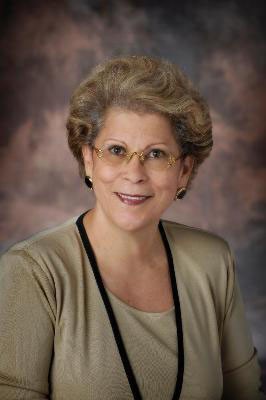Busting stereotypes

GVL / Courtesy – gvsu.edu Dr. Antonia Coello Novello (14th Surgeon General of the United States)
Sep 28, 2017
Grand Valley State University welcomed Dr. Antonia Novello Wednesday, Sept. 27, in honor of Hispanic Heritage Month. Novello was the first woman, and the first Hispanic, to be appointed the 14th surgeon general of the U.S. Public Health Service in 1990.
Dr. Cynthia McCurren, dean of the Kirkhof College of Nursing at GVSU, introduced Novello through a personal memory of Novello’s appointment in 1990 and the important role that she not only played in her own life, but in the public health sphere as well.
“As an individual that’s been in nursing for over 30 years, and therefore more broadly in health care, I’m very much impressed and influenced by those who provide leadership and who take on the responsibility of the leadership as much as at the national person,” McCurren said. “This is a person that I remember her appointment when I was going through my times working in health care, and my continuing to work in health care, she has made an impression on me.”
During the event, titled “Hispanics: More Than Statistics,” Novello emphasized the presence of Hispanics here in the U.S. through statistics and other information. She also described the many ways that Hispanics are misrepresented in American society (in the workforce, in education, in the military, in health care, etc.). The lecture began with a broader message from her time as surgeon general.
“As I have said, when I was surgeon general, the world owes you nothing,” Novello said. “To believe that the world is going to change because you are a woman or a surgeon general is like assuming that a bull is not going to hit you because you’re a vegetarian. I also learned that service is the rent you pay for living.”
In her lecture, Novello spent a significant amount of time combating stereotypes about Hispanics. She did so through a variety of statistics and other information in order to emphasize the fact that much of what the U.S. thinks of Hispanics is in fact untrue and that they are here to stay.
“Spanish is and will be spoken here whether America wants it, needs it or acknowledges it,” Novello said. “I have to tell you that a nation of one ancestry and one race is a weak nation. The real solution is to demand coordinated efforts and ignoring the topics of one-third of the United States population.
“I have a feeling that stereotyping the Hispanics is fueled only by opinion, so why don’t we give you the facts.”
Among the many categories of her statistics, Novello made a point to highlight the U.S. military and government. She noted that there are currently 1.1 million Hispanics in the military and that Hispanics also have a significant presence in the U.S. governmental system.
“In the last seven years, the number of Hispanic-elected officials has increased by 30 percent,” she said. “We now have 38 members of us in the U.S. Congress, 34 percent of the House, four percent in the Senate, one of them a woman, and eight of them are Puerto Ricans.”
In her section on health care, Novello said the U.S. currently spends $3.35 trillion on health care. She said even with all this money going toward health care, Hispanics are not a part of the equation in terms of monetary consideration, culture or language.
“In the presence of these trillions, it seems to be that one in four Latinos do not have a health care provider or someone to go to,” Novello said. “More than anything, most of us get the information about health in languages that we do not understand, or from people who really do not want to learn our language.”
When putting all of her points together, Novello said Hispanics play a major role in the country’s economy in a handful of different ways. She said they make up a significant amount of the population, and corporate America is not going to be able to ignore their presence for much longer.
“I believe that corporate America has to be prepared for the changes that are coming, and we Latinos have to be prepared to implement this tragedy of accountability,” she said. “We need to ask, as it has been said, ‘What are you doing for me, mister?’ We buy, we invest, we make money, we consume and we are major contributors to your corporate assets. So, we are no longer invisible, mister. I say it again, ‘What are you doing for me?’”
Novello was born in Puerto Rico, where she graduated from the University of Puerto Rico with a Bachelor of Science degree and a Doctor of Medicine degree in 1970. She completed subspecialty training in pediatric nephrology at the University of Michigan and Georgetown University. She received a master’s in public health and a doctor of public health from John Hopkins School of Hygiene and Public Health.
As surgeon general, Novello advised the public on various health matters throughout her time in the position. These issues included, but are not limited to, AIDS, nutrition, the importance of immunization and environmental hazards.
On June 3, 1999, Gov. George Pataki nominated Novello to be the 13th New York state health commissioner. In recent years, Novello served as the executive director of public health policy at Florida Hospital. She currently serves as a liaison between the Dominican Republic government and the attorney general on raising awareness of domestic violence.
For more information on Novello, visit www.gvsu.edu/events/professionals-of-color-lecture-series-hispanics-more-than/.























